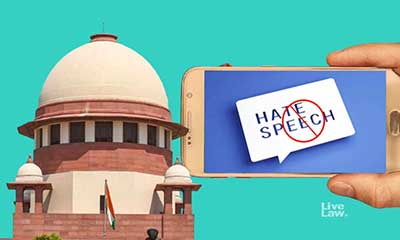Relevance: GS-2 : Structure, organization and functioning of the Executive and the Judiciary.
Key Phrases: Peddling of Communal Hate, Inflammatory Speeches, Genocidal Tenor, Controversial Religious Figures, Allegedly Minority-Friendly Constitution, Communal Harmony, Reasonable Restriction to Free Speech, Public Tranquility.
Why in News ?
- The authorities in Uttarakhand have recently prevented the holding of a ‘dharam sansad’ in Roorkee by imposing prohibitory orders against such gatherings.
- The move comes after the Supreme Court called for “corrective measures” against the peddling of communal hate from supposedly religious platforms.
Some Recent Incidences of Hate Speeches:
- One religious conclave in Haridwar witnessed extraordinarily inflammatory speeches.
- Same kind of incident took place in Himachal Pradesh inciting communal hatred among communities.
Why a Proactive Judicial Intervention is Needed ?
- Instances of controversial religious figures making unacceptable comments at different places and occasions have emerged as a disturbing pattern, one that the Court may have to arrest by stern action.
- The provocateurs are seeking to foster a collective fear among the majority that their interests are not being protected by an allegedly minority-friendly Constitution, and feeding off the same fear to spread their message of hate.
- The possible damage to the social fabric is incalculable, as the language of hatred may seep into the public consciousness as an acceptable thought process.
- The result may be an atmosphere in which communal harmony and public tranquility will be at perennial risk.
What is The Need of Hour ?
- A clear distinction is need to be made between freedom of expression and speech that tends to incite hatred against a public group or section of society.
- In cases relating to lynching and ‘khap panchayats’, the Court laid down guidelines on preventive, remedial and punitive measures.
- While these are to be followed without exceptions, there is also a need for considering new criminal and penal provisions to combat hate speech.
- At a time when communally motivated gatherings are increasing in their frequency and vociferous in their inflammatory speeches against minorities, one would expect the police to be more sensitive to the situation and prevent hate speeches.
Definition of Hate Speech :
- There is no specific legal definition of ‘hate speech’. Provisions in law criminalise speeches, writings, actions, signs and representations that stir violence and spread disharmony between communities and groups and these are understood to refer to ‘hate speech’.
- As per the Law Commission of India , “Hate speech generally is an incitement to hatred primarily against a group of persons defined in terms of race, ethnicity, gender, sexual orientation, religious beliefs.
- In general, hate speech is considered a limitation on free speech that seeks to prevent or bar speech that exposes a person or a group or section of society to hate, violence, ridicule or indignity.
How is It Treated In Indian law?
- Sections 153A and 505 of the Indian Penal Code are generally taken to be the main penal provisions that deal with inflammatory speeches and expressions that seek to punish ‘hate speech’.
- Under Section 153A, ‘promotion of enmity between different groups on grounds of religion, race, place of birth, residence, language, etc., and doing acts prejudicial to maintenance of harmony’, is an offence punishable with three years’ imprisonment.
- It attracts a five-year term if committed in a place of worship, or an assembly engaged in religious worship or religious ceremonies.
- Section 505 of IPC makes it an offence to making “statements conducing to public mischief” .
- The statement, publication, report or rumour that is penalised under Section 505(1) should be one that promotes mutiny by the armed forces, or causes such fear or alarm that people are induced to commit an offence against the state or public tranquility; or is intended to incite or incites any class or community to commit an offence against another class or community. This attracts a jail term of up to three years.
- Under 505(2), it is an offence to make statements creating or promoting enmity, hatred or ill-will between classes.
Conclusion:
- Taking cue from best international standards, it is important that specific and durable legislative provisions that combat hate speech, especially that which is propagated online and through social media, is enacted by amending the IPC and the Information Technology Act.
- Ultimately, this would be possible only when hate speech is recognised as a reasonable restriction to free speech.
Source: The Hindu
Mains Question :
Q. The freedom of speech and expression though guaranteed by the Constitution but is not absolute. Critically evaluate.








